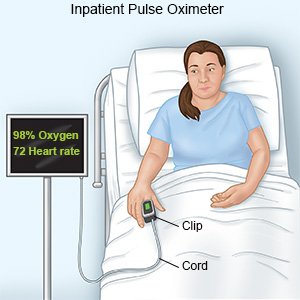Bacterial Pneumonia
Medically reviewed by Drugs.com. Last updated on Aug 4, 2025.
Bacterial pneumonia is a lung infection caused by bacteria. Your lungs become inflamed and cannot work well. Bacterial pneumonia germs are easily spread when an infected person coughs, sneezes, or has close contact with others.
 |
WHILE YOU ARE HERE:
Informed consent
is a legal document that explains the tests, treatments, or procedures that you may need. Informed consent means you understand what will be done and can make decisions about what you want. You give your permission when you sign the consent form. You can have someone sign this form for you if you are not able to sign it. You have the right to understand your medical care in words you know. Before you sign the consent form, understand the risks and benefits of what will be done. Make sure all your questions are answered.
An IV
is a small tube placed in your vein that is used to give you medicine or liquids.
Medicines:
- Antibiotics help treat a bacterial infection.
- Acetaminophen and ibuprofen decrease fever and pain.
- Steroids help reduce swelling.
Tests:
- A pulse oximeter is a device that measures the amount of oxygen in your blood. A cord with a clip or sticky strip is placed on your finger, ear, or toe. The other end of the cord is hooked to a machine.

- A chest x-ray may show signs of infection in your lungs. This test may also show other problems, such as fluid around your lungs.
- Blood tests can help healthcare providers learn more about your bacterial pneumonia.
- A mucus sample is collected and tested for the germ that is causing your illness. It can help your healthcare provider choose the best medicine to treat the infection.
Treatment:
- Airway clearance techniques are exercises to help remove mucus so you can breathe more easily. Your healthcare provider will show you how to do the exercises. These exercises may be used along with machines or devices to help decrease your symptoms.
- Breathing treatments help open your airways so you can breathe easier. A machine is used to change liquid medicine into a mist. You will breathe the mist into your lungs through tubing and a mouthpiece. Inhaled mist medicines act quickly on your airways and lungs to relieve your symptoms.
- Respiratory support is given to help you breathe. You may receive oxygen to increase the level of oxygen in your blood. You may also need a machine to help you breathe.
RISKS:
You may have breathing problems, or the infection can spread to other areas of your body. Extra fluid may collect in the space around your lungs, or your lungs may get damaged. You may not be able to get enough oxygen if your lungs are inflamed or damaged. Low oxygen can cause damage to other organs, such as your kidneys, heart, and brain.
CARE AGREEMENT:
You have the right to help plan your care. Learn about your health condition and how it may be treated. Discuss treatment options with your healthcare providers to decide what care you want to receive. You always have the right to refuse treatment.© Copyright Merative 2025 Information is for End User's use only and may not be sold, redistributed or otherwise used for commercial purposes.
The above information is an educational aid only. It is not intended as medical advice for individual conditions or treatments. Talk to your doctor, nurse or pharmacist before following any medical regimen to see if it is safe and effective for you.
Learn more about Bacterial Pneumonia
Treatment options
Care guides
Further information
Always consult your healthcare provider to ensure the information displayed on this page applies to your personal circumstances.
